the life and work of a revolutionary and novelist
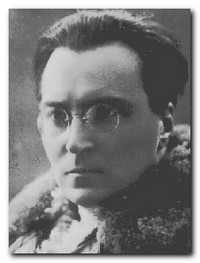 Victor Serge (1890-1947) wrote under the most difficult conditions, much of the time whilst living in exile – in his adopted homeland Russia, in France, and in Mexico. He frequently had to write in secret and he smuggled his work out of the Soviet Union to be published in France and Spain. His work was banned throughout the communist period in Russia, and it has only recently become available there. It also has to be said that his work goes in and out of print rather a lot in English-language publications. A gifted linguist, he chose to write in French. Besides being the preferred language of Russian intellectuals of his generation, French assured him an international audience.
Victor Serge (1890-1947) wrote under the most difficult conditions, much of the time whilst living in exile – in his adopted homeland Russia, in France, and in Mexico. He frequently had to write in secret and he smuggled his work out of the Soviet Union to be published in France and Spain. His work was banned throughout the communist period in Russia, and it has only recently become available there. It also has to be said that his work goes in and out of print rather a lot in English-language publications. A gifted linguist, he chose to write in French. Besides being the preferred language of Russian intellectuals of his generation, French assured him an international audience.
He wrote in a great variety of literary forms – poetry, journalism, novels, and political history, as well as some very good literary criticism and an excellent autobiography. All his work is very political, but it is shot through with what might be called a militant humanism. That is, he never let political dogma over-rule his compassion for his fellow men.
 If you have not read his work before, a good place to start is his autobiography, Memoirs of a Revolutionary 1901-1941 written when he was in exile in Mexico. It outlines his astonishing life in the first four decades of the twentieth century. He was active first as an anarchist, then as a socialist militant, as a typographer, a journalist, and then as a professional revolutionary. He spent time in poverty, in jail, and in armed struggle. And he seemed to know everybody who was important – people such as Leon Trotsky, Lenin, and Georgy Lukacs.
If you have not read his work before, a good place to start is his autobiography, Memoirs of a Revolutionary 1901-1941 written when he was in exile in Mexico. It outlines his astonishing life in the first four decades of the twentieth century. He was active first as an anarchist, then as a socialist militant, as a typographer, a journalist, and then as a professional revolutionary. He spent time in poverty, in jail, and in armed struggle. And he seemed to know everybody who was important – people such as Leon Trotsky, Lenin, and Georgy Lukacs.
The pages of this memoir are packed with events and people, and he writes in a vivid, sparkling style which holds you gripped. His life is almost unbelievably dramatic, and he is not in the slightest self-pitying as he endures poverty, political persecution, jail, and exile. And all the time, not matter what the circumstances, he is being creative as a novelist, a historian, or a journalist. It is truly amazing that he survived a period which he himself called ‘Midnight of the Century’, and it’s a tribute to his creativity that this is what saved him, because his fame as a writer had spread so wide. He was sent into ‘internal exile’ by Stalin because of his oppositionist views, but a campaign for his release was launched in western Europe, and was eventually successful.
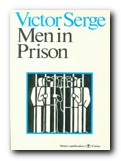 The novels of Victor Serge fall into two sets of trilogies. The first deals with his early prison experiences, the failed Barcelona uprising, and the successful Bolshevik revolution. Men in Prison (1930) is based on his own life as a prisoner of the French during the first world war. Politically, it deals with his early anarcho-syndicalist beliefs, but in literary terms it belongs to the very Russian tradition of prison literature. More than anything, it is a heartfelt plea of human sympathy for the underdog, and a call to arms in favour of rebellion and resistance to all forms of repression and tyranny.
The novels of Victor Serge fall into two sets of trilogies. The first deals with his early prison experiences, the failed Barcelona uprising, and the successful Bolshevik revolution. Men in Prison (1930) is based on his own life as a prisoner of the French during the first world war. Politically, it deals with his early anarcho-syndicalist beliefs, but in literary terms it belongs to the very Russian tradition of prison literature. More than anything, it is a heartfelt plea of human sympathy for the underdog, and a call to arms in favour of rebellion and resistance to all forms of repression and tyranny.
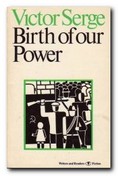 Birth of Our Power (1931) is losely basd on Serge’s own experiences following his release from prison. It is centred on the events of the Barcelona uprising in 1918 and then after its failure moves on to the immediate aftermath of the successful Russian revolution in St Petersburg. Politically, these events trace the development of his allegiance from that of an anarcho-syndicalist to that of a Bolshevik, but a communist in the old sense – one with liberal-humanist values and a respect for democratic values.
Birth of Our Power (1931) is losely basd on Serge’s own experiences following his release from prison. It is centred on the events of the Barcelona uprising in 1918 and then after its failure moves on to the immediate aftermath of the successful Russian revolution in St Petersburg. Politically, these events trace the development of his allegiance from that of an anarcho-syndicalist to that of a Bolshevik, but a communist in the old sense – one with liberal-humanist values and a respect for democratic values.
Differences of opinion with the Stalinists who took over in the USSR led to him being sent into ‘internal exile’, where all of his writings and personal papers were confiscated by the secret police. There have been several attempts made to have these released, especially after the fall of communism in 1989, but they have still not been located.
Following a successful campaign in the west for his release, he returned to France in 1936 and resumed work on two books on Soviet communism, From Lenin to Stalin (1937) and Destiny of a Revolution (1937). He also published a volume of poetry, Resistance (1938) about his experiences in Russia. there was also a voluminous exchange of correspondence with Leon Trotsky, though the two oppositionists eventually agreed to disagree.
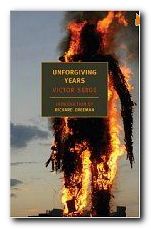 When the Germans invaded France in 1940, he left Paris and travelled to Marseilles, and in 1941 left on the same ship as Andre Breton and Claude Levi-Strauss. His destination was Mexico – the only place which would grant him a resident’s visa. As soon as he settled there he became the object of violent articles and threats to his life from Stalin’s agents – who had recently assassinated Leon Trotsky.
When the Germans invaded France in 1940, he left Paris and travelled to Marseilles, and in 1941 left on the same ship as Andre Breton and Claude Levi-Strauss. His destination was Mexico – the only place which would grant him a resident’s visa. As soon as he settled there he became the object of violent articles and threats to his life from Stalin’s agents – who had recently assassinated Leon Trotsky.
His last years were full of poverty, malnutrition, illness, police surveillance, slander and isolation. Yet he continued to publish novels such as The Long Dusk, Unforgiving Years, and his masterpiece, The Case of Comrade Tulayev. His autobiography, Memoirs of a Revolutionary, was first published in the United States in 1945. Serge’s health had been badly damaged by his periods of imprisonment in France and Russia. However, he continued to write until he died of a heart-attack in Mexico City on 17th November, 1947.
© Roy Johnson 2010
More on Victor Serge
Twentieth century literature
More on biography
 The whole sweep of his life as a writer, intellectual, historian, and revolutionary is covered in his autobiographical
The whole sweep of his life as a writer, intellectual, historian, and revolutionary is covered in his autobiographical 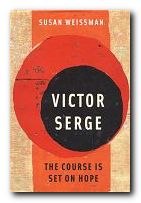 Susan Weissmann’s
Susan Weissmann’s 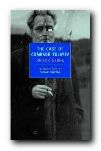
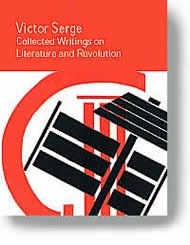 It is astonishing to realise that alongside all his political activities and his time spent as a historian and novelist, Serge also found time to write on literary theory. His
It is astonishing to realise that alongside all his political activities and his time spent as a historian and novelist, Serge also found time to write on literary theory. His 



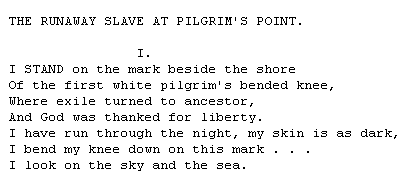 [2]
[2]